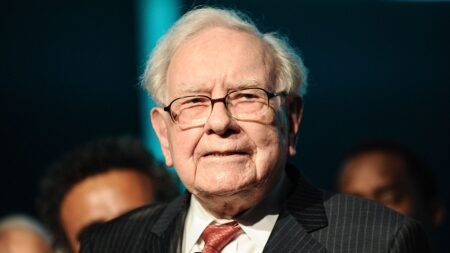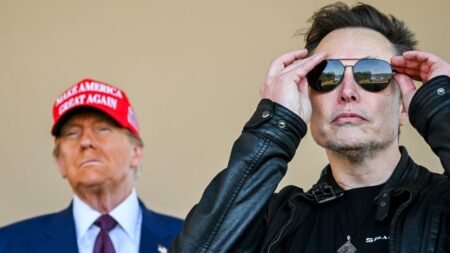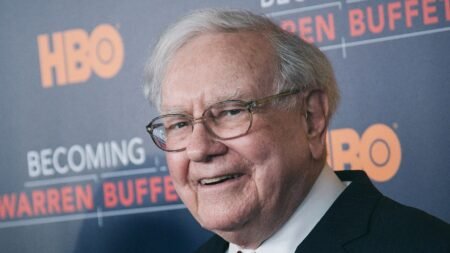Just one month into the job and President Donald Trump is making big changes in government. That includes energy policy, which is vital for the economy.
Trump has to do a couple of things, Bjorn Lomborg, political scientist and president of the Copenhagen Consensus Center, told FOX Business on the sidelines at the three-day Alliance for Responsible Citizenship (ARC) conference in London last week.
“We need to get much more energy because we know energy is the lifeblood of making sure you have very prosperous societies… He will be doing that.”
That’s a different approach to energy policy than Democrats took earlier this decade. In 2022, the number of federal lands drilling permits approved by the Biden government plunged from the previous year.
FRANCE, EUROPE ATTEMPT TO FLEX TECH MUSCLES AT PARIS AI SUMMIT IN CLASH OF CIVILIZATIONS
But with a new administration, an energy policy shakeup is in process. Earlier this month, a White House memo announced the formation of the National Energy Dominance Council to help with “unleashing American energy.” That means cutting red tape and raising energy output, the memo states.
However, there’s more to it than that, Lomborg told FOX Business. “Around the world there are plenty of people who are very worried about climate change. We need to address those issues as well,” he says.
The way to do it is to make significant cuts in overall funding but funnel the smaller budget “smartly” toward innovation that will eventually fix climate change, Lomborg said. “This is going to be much cheaper,” he said, adding, “It’s going to drive innovation in a lot of different ways.” He says a likely suitable allocation would be up to $30 billion, which he dubs as a “rounding error in most of the U.S. conversations on developing cheap, free and effective energy.”
But Lomborg has mixed views on whether the phrase “drill baby drill’ is helpful in crafting energy policy. “It’s a way to, you know, burn a lot of votes and also get a lot of people annoyed,” he says. “I think we should probably not be saying it that way. But fundamentally, it shows you what drives the world is energy, cheap, available energy.”
And it’s clear the world needs more energy, Lomborg said. “It’s easy for rich people in the rich world to say, we can do with less energy,” he said, pointing to rich developed countries such as the U.S. and Western Europe. “But most people in this world, are incredibly poor and they need much, much more energy. So, in that way, Trump is absolutely right.”
EUROPE’S BEST KEPT SECRET: POLAND, THE REGION’S ECONOMIC TIGER

Poorer countries are largely relying on fossil fuels, such as coal, and that’s because it’s far cheaper than green technologies. “Imagine if we could make fourth generation nuclear cheaper than fossil fuels,” Lomborg said. “We would get not just the U.S. and Europe on board, but we get the Chinese and the Africans.” In other words, lower priced clean energy would get more countries on board with newer energy tech.
One region that doesn’t seem to have a stable energy policy is Europe, notably the United Kingdom and Germany, two of the largest economies in that part of the world.
Germany made some radical changes to energy policy a decade and a half ago, involving a desire to go green at breakneck speed. It didn’t happen. “In 2010, Germany got 79.6% of its energy from fossil fuels,” Lomborg told FOX Business. “Fast-forward to 2023 and they still get 79.3% of its energy from fossil fuels.” At least part of Germany’s situation is due to its decision to reduce its nuclear power output to a tiny fraction of what it was in 2010.
Britain also has its own energy challenges. Since 2003, the price of electricity for British households and businesses has jumped three-fold. “This is a real drag on the economy,” Lomborg said. He points to the likelihood that higher energy costs will likely push industrial companies away from Europe to countries such as China and India.

On the United Nations push for green energy, he said, “We need somewhere where all nations can meet and talk.” That said, he’s not so convinced by the rush to get to net-zero, meaning no carbon emissions by 2050. “There’s no way we can do that… It’s going to be fantastically costly, and it’s going to be incredibly damaging, especially for poor countries.”
“I think what President Trump is now saying is that we need to get off this path and get on a smarter path,” Lomborg told Fox News.
Read the full article here
















